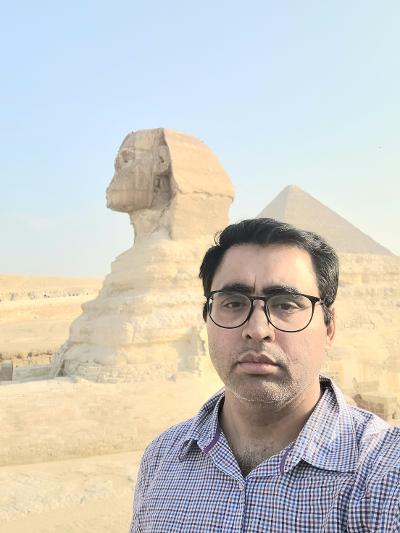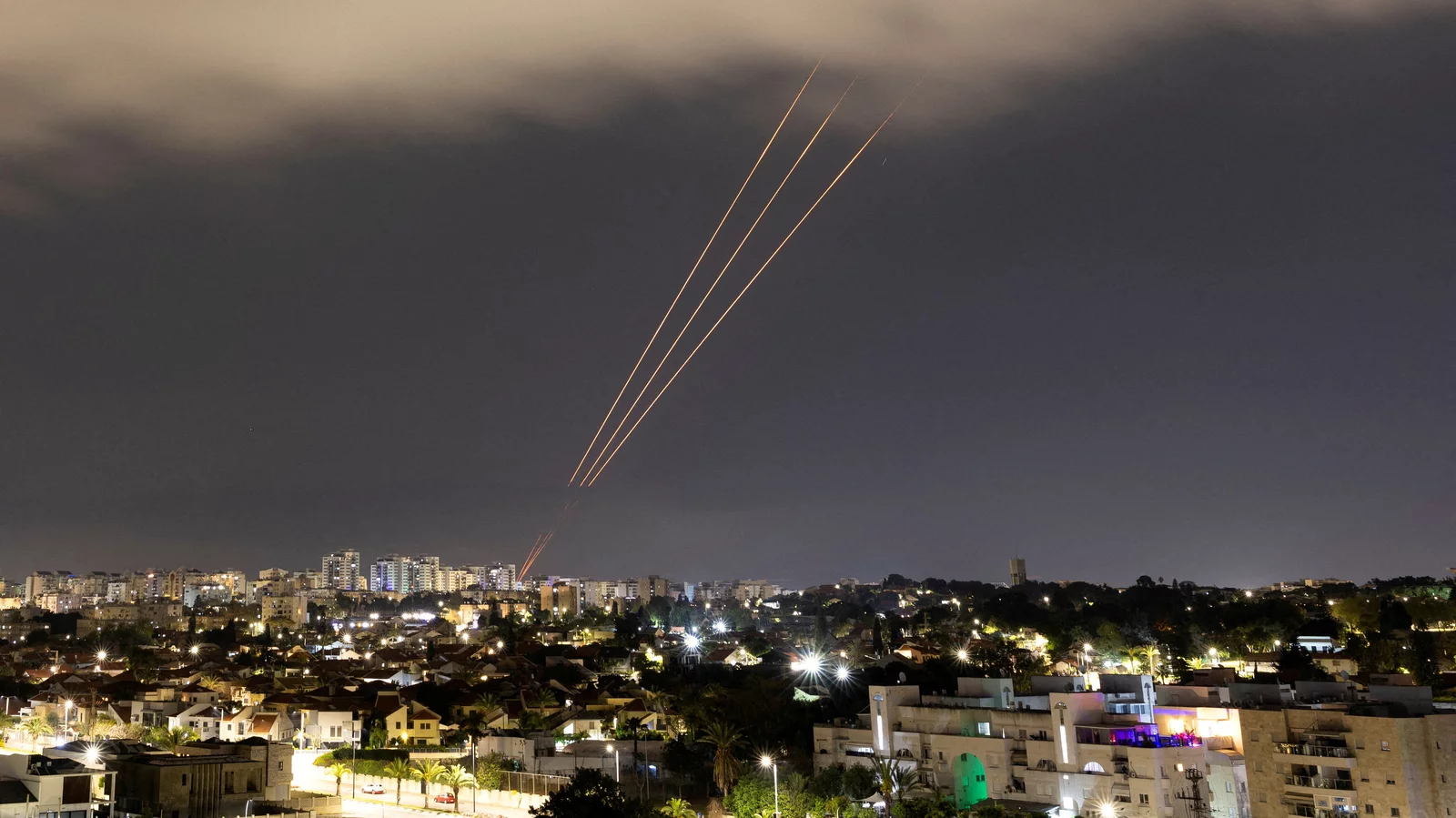Brigadier General Mohammad Reza Zahedi, a senior commander in the elite Quds Force of Iran’s Revolutionary Guard Corps (IRGC), and his deputy
Teaching the next generation to make peace. By Mohamad Bashar Arafat

Religious leaders should advocate the spirit of God’s words, which make no distinction between colour and creed and are found in all religions’ divine revelations. It is God’s will that our societies be culturally and religiously diverse, as He says in the Qur’an: “And if thy Lord had willed, He verily would have made mankind one nation, yet they cease not differing” (11:118).
Teaching – and encouraging – values that promote understanding for diversity is the role of all religious leaders regardless of faith, something the Qur’an consistently advocates.
As an imam who has served in the United States for 20 years and in Syria for nine years prior to that, I thank God for the experience of living in a culturally and religiously diverse society. I often wonder: how is our human family, which occupies this global village that has been blessed with mass communication and transportation, going to appreciate our commonalities which far exceed our differences?
Shortly after coming to the United States, I realised that many people do not understand the true teachings of Islam and the contributions that Muslim civilisations have made to American and European societies. This lack of knowledge and understanding are major obstacles to achieving harmonious coexistence between Muslims and non-Muslims. After all, the media does not tell stories demonstrating how much religions have in common, nor does it focus on the need for interfaith relations.
This was one of the driving forces that led me to establish the Civilizations Exchange and Cooperation Foundation (CECF), an organisation that fosters cooperation rather than confrontation among people of different religions and cultures through professional, clergy and student exchange programmes, as well as seminars and cultural education classes available in the United States, Jordan, Egypt, Spain and Morocco.
A core part of CECF is an annual youth leadership and interfaith conference called Better Understanding for a Better World (BUBW), which I established with the purpose of bringing together students from the Middle East, Africa, Asia, Europe and North America. After the first conference in 2006, I began to recognise the dire need to provide the world’s youth with experiences such as this, giving them the opportunity to meet their peers from up to 35 countries and share information on the history, culture, religions and politics of their countries and peoples.
What they have come to value the most, however, is the interfaith component of the programme. Each group is given a guided tour of a mosque, synagogue and church, and is able to meet with clergy from the major Abrahamic faiths, who describe the tenets and history of their faith traditions. Many of these students have never had the chance to listen to clerics from other faiths explain their core beliefs and shed light on their religious practices. And many of the students, I believe, have probably only heard distorted messages about other religions or learned about them through the prism of political or social conflict.
It is always moving for me to witness the changes exhibited by these youth— who embody the hope and the future of each of the countries they represent— at the end of the conference. With their increased knowledge about different faiths, cultures and people, they not only gain confidence in themselves but also develop an appreciation of the value of interfaith dialogue. Some even cry when leaving to return home, knowing how much they will miss these days that led to drastic changes in their lives.
At the end of the first BUBW Conference which took place in Orlando in 2006, one student from Lebanon said, “I felt a huge concern was removed from my heart. I now see how similar we all are! I personally...learned from each and every activity. I found out how stupid it is to fight over religion.” Another student from Ghana, who attended the 2010 BUBW Conference in Baltimore, commented on the impact of learning about peace through interfaith dialogue, claiming that “since returning from the conference, anytime I sit to think about it, it pushes me further to do more things for the world.... Now it is time for me to go home to my country of Ghana and work for peace in connection with CECF.”
The only path forward for all of us, as one family of diverse backgrounds and religions, young and old, is to walk together on the path of interfaith dialogue, which replaces ignorance with understanding, neglect with care, greed with generosity, and conflict with peace and love.
###
* Imam Mohamad Bashar Arafat is President of the Islamic Affairs Council of Maryland and Founder of the Civilizations Exchange and Cooperation Foundation. This article is part of a series on spiritual leaders and interfaith dialogue written for the Common Ground News Service (CGNews).
Teaching – and encouraging – values that promote understanding for diversity is the role of all religious leaders regardless of faith, something the Qur’an consistently advocates.
As an imam who has served in the United States for 20 years and in Syria for nine years prior to that, I thank God for the experience of living in a culturally and religiously diverse society. I often wonder: how is our human family, which occupies this global village that has been blessed with mass communication and transportation, going to appreciate our commonalities which far exceed our differences?
Shortly after coming to the United States, I realised that many people do not understand the true teachings of Islam and the contributions that Muslim civilisations have made to American and European societies. This lack of knowledge and understanding are major obstacles to achieving harmonious coexistence between Muslims and non-Muslims. After all, the media does not tell stories demonstrating how much religions have in common, nor does it focus on the need for interfaith relations.
This was one of the driving forces that led me to establish the Civilizations Exchange and Cooperation Foundation (CECF), an organisation that fosters cooperation rather than confrontation among people of different religions and cultures through professional, clergy and student exchange programmes, as well as seminars and cultural education classes available in the United States, Jordan, Egypt, Spain and Morocco.
A core part of CECF is an annual youth leadership and interfaith conference called Better Understanding for a Better World (BUBW), which I established with the purpose of bringing together students from the Middle East, Africa, Asia, Europe and North America. After the first conference in 2006, I began to recognise the dire need to provide the world’s youth with experiences such as this, giving them the opportunity to meet their peers from up to 35 countries and share information on the history, culture, religions and politics of their countries and peoples.
What they have come to value the most, however, is the interfaith component of the programme. Each group is given a guided tour of a mosque, synagogue and church, and is able to meet with clergy from the major Abrahamic faiths, who describe the tenets and history of their faith traditions. Many of these students have never had the chance to listen to clerics from other faiths explain their core beliefs and shed light on their religious practices. And many of the students, I believe, have probably only heard distorted messages about other religions or learned about them through the prism of political or social conflict.
It is always moving for me to witness the changes exhibited by these youth— who embody the hope and the future of each of the countries they represent— at the end of the conference. With their increased knowledge about different faiths, cultures and people, they not only gain confidence in themselves but also develop an appreciation of the value of interfaith dialogue. Some even cry when leaving to return home, knowing how much they will miss these days that led to drastic changes in their lives.
At the end of the first BUBW Conference which took place in Orlando in 2006, one student from Lebanon said, “I felt a huge concern was removed from my heart. I now see how similar we all are! I personally...learned from each and every activity. I found out how stupid it is to fight over religion.” Another student from Ghana, who attended the 2010 BUBW Conference in Baltimore, commented on the impact of learning about peace through interfaith dialogue, claiming that “since returning from the conference, anytime I sit to think about it, it pushes me further to do more things for the world.... Now it is time for me to go home to my country of Ghana and work for peace in connection with CECF.”
The only path forward for all of us, as one family of diverse backgrounds and religions, young and old, is to walk together on the path of interfaith dialogue, which replaces ignorance with understanding, neglect with care, greed with generosity, and conflict with peace and love.
###
* Imam Mohamad Bashar Arafat is President of the Islamic Affairs Council of Maryland and Founder of the Civilizations Exchange and Cooperation Foundation. This article is part of a series on spiritual leaders and interfaith dialogue written for the Common Ground News Service (CGNews).
You May Also Like
Iran will have to remember that - the Iranian revolution of 1979 was not merely a Shia revolution but Islamic revolution (ii)- Being worshipers of
IF India gives-up “One China policy” then it will also impact the issues of Xinjiang, Hong Kong and Taiwan which all are claimed

"Trial of Pakistani Christian Nation" By Nazir S Bhatti
On demand of our readers, I have decided to release E-Book version of "Trial of Pakistani Christian Nation" on website of PCP which can also be viewed on website of Pakistan Christian Congress www.pakistanchristiancongress.org . You can read chapter wise by clicking tab on left handside of PDF format of E-Book.







